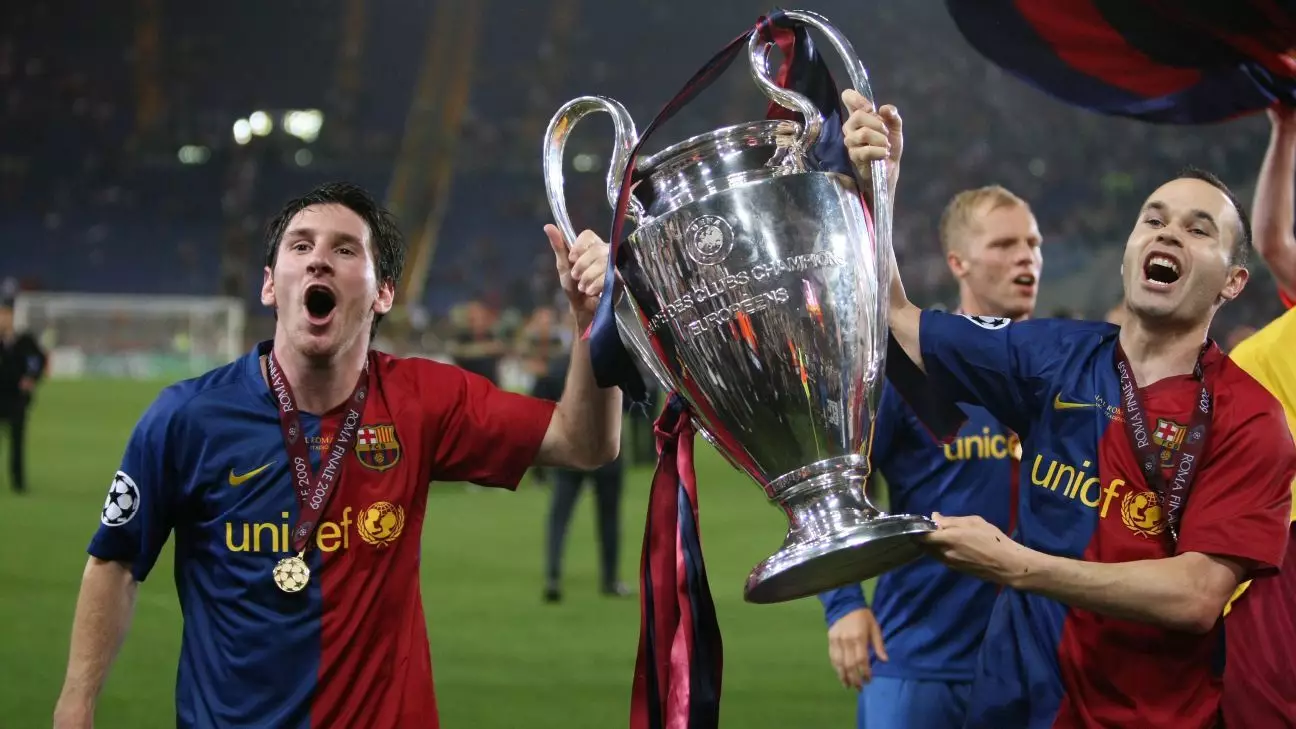Lionel Messi, one of football’s most illustrious figures, recently expressed his nostalgia for FC Barcelona in an interview commemorating the club’s 125th anniversary. The sentiments conveyed by Messi highlight the profound connection he has with the Catalan football institution, a relationship that blossomed over two decades. Since joining Barcelona as a young adolescent in 2000, Messi has risen to stardom, firmly establishing himself as not only the club’s highest goal scorer but also its emblematic figure.
In his interview with TV3, Messi shared heartfelt congratulations to the club, emphasizing that being part of FC Barcelona has been a significant honor. His words underscore an emotional bond that extends beyond mere accolades or trophies, illustrating how ingrained the club is in his identity. Acknowledging the seminal moment in 1899 when Joan Gamper founded the club, Messi’s reflections are steeped in history—a history to which he dedicated a substantial portion of his life.
While celebrating the club’s accomplishments, Messi implicitly addressed the evolving nature of football and the challenges clubs face today. He pointed out how management changes and commercial pressures have transformed the landscape, making Barcelona’s unique culture and ethos seem both cherished and endangered. The challenges he referred to highlight an important narrative in modern football—one where traditional clubs must adapt to survive amid shifting global dynamics, financial pressures, and competitive rivalries.
Nevertheless, Messi expressed a steadfast pride in the club’s youth academy, La Masia, which has historically nurtured talent and produced footballing icons. His comments reflect a deep-seated hope that Barcelona continues to foster young talents who can grow into the heartbeat of the first team. Messi’s longing for the camaraderie of his former teammates, the electrifying atmosphere of Camp Nou, and the love of the fans reveals an essential truth—Barcelona has shaped him as a player and as a person.
When discussing personal highlights, Messi pointed to the extraordinary year of 2009 when Barcelona achieved an unprecedented treble, collecting six prestigious titles. This moment of glory encapsulated not just a successful campaign but a season characterized by exhilarating teamwork and a shared belief in potential. The confidence exhibited throughout that year and the joy derived from each match underscored what it meant to play for Barcelona—a feeling that perhaps transcends sport itself.
The triumphs Messi experienced at Barcelona, including ten La Liga titles and four UEFA Champions League trophies, cement his legacy in an incomprehensible way. The accolades are a testament to his unparalleled talent, but more significantly, they tell the story of a collective effort that echoes within the club’s ethos. Messi’s nostalgia for shared moments with fans and teammates reflects the deeper emotional resonance of sports beyond mere statistics.
A Festive Commemoration of a Storied Past
As Barcelona prepared for its anniversary gala at the Gran Teatre del Liceu, it emerged as a celebration not only of its storied past but also of the future. First-team coach Hansi Flick echoed sentiments of acclaim, affirming that Barcelona indeed lives up to its motto, “Més que un club” (More than a club). His observations on the warmly welcoming fans highlight the collective pride associated with the club and its continuing relevance in football culture.
Flick’s reflections on the operational freedom and collaborative spirit within the organization further hinted at a renaissance for the club, where both legacy and forward momentum could coexist. His recognition of the unwavering support from fans illustrates a symbiotic relationship that fuels the essence of FC Barcelona. The harmony between the past, present, and future serves as a blueprint for the enduring legacy of the club Messi so dearly misses.
The Indelible Mark of Barcelona in Messi’s Life
As Messi embarks on a new chapter in his football journey with Inter Miami, his reminiscences of Barcelona remind us that the impact of a club is never truly severed, even in departure. His tribute serves as a poignant reminder of what it means to be part of a community that transcends football itself—a community woven together by shared dreams, struggles, and triumphs.
In a world where football can often feel like a transactional business, Messi’s reflections on his time at Barcelona restore a sense of humanity to the game. As the club charts its future amid contemporary challenges, it remains imperative to nurture that legacy, staying true to the core values that have defined FC Barcelona for 125 years. In the end, Messi’s connection to Barcelona is not merely fondness—it is a profound part of who he has become, a sentiment that echoes in the hearts of countless fans worldwide.

